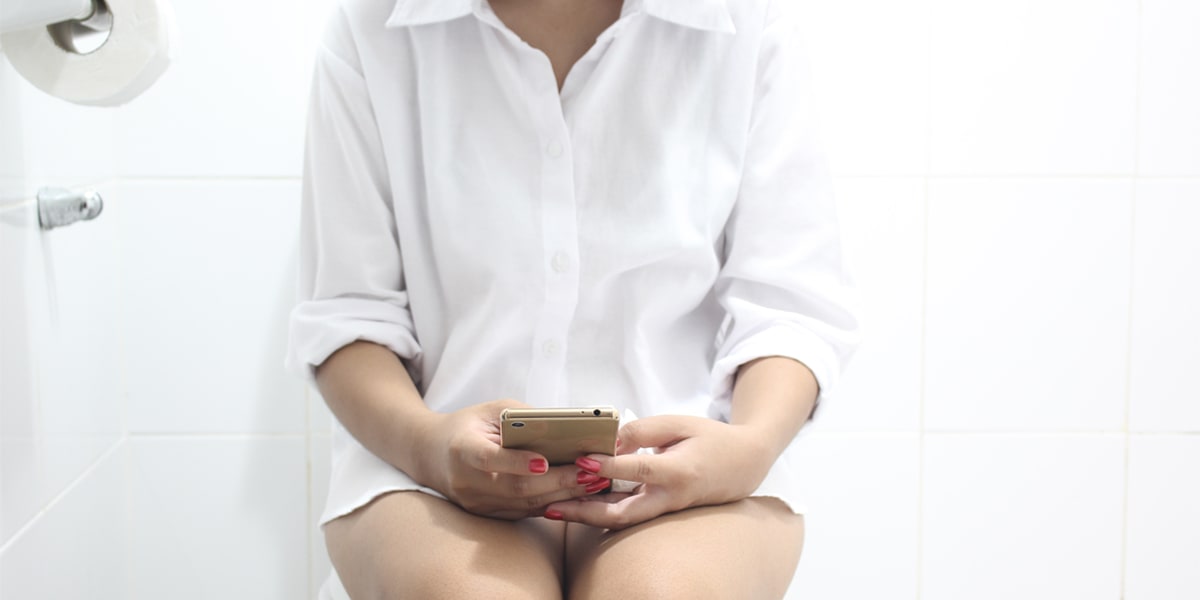Why you should absolutely always pee after sex (yes, every time)

If you have a vagina, you've probably heard that you’re supposed to pee after sex. But do you know why it’s so important? Or how soon afterward you should head to the bathroom? Here’s what you need to know about why (and when) you should go.

Why do I need to pee after sex?
The main reason that people with vaginas should pee after penetrative sex is to help reduce the chances of contracting a urinary tract infection (UTI). A UTI occurs when bacteria travel up the urethra and enter the bladder, where they multiply and cause inflammation. During sex, fecal bacteria near the anus can get pushed closer to the urethra. People with vaginas have a shorter urethra than people with penises do, meaning there is a shorter distance for bacteria to travel from the urethra to the bladder.
Peeing after sex can help flush out the urethra, keeping potentially harmful bacteria from sticking to the walls of the urinary tract, and lowering your risk of a UTI. A UTI can spread to other parts of your urinary tract, including your bladder, uterus, and kidneys. Urinary tract infections don’t always have symptoms, but they can cause burning when you pee, a frequent need to pee, pelvic pain, and cloudy, strong-smelling, or unusually colored urine. So a quick trip to the bathroom can save you a lot of unnecessary pain and suffering.

Do I have to pee immediately after sex?
Short answer: no. You can stick around and cuddle for a bit, but ideally you should pee within 30 minutes of having sex. Peeing after sex helps flush out bacteria before it can travel to the bladder, so while you don’t have to hop out of bed right away, also make sure you don’t immediately go to sleep for 8 hours. However, if you are prone to contracting UTIs frequently, peeing immediately after sex may be more effective.
Does everyone need to pee after sex?
Peeing after penetrative sex is especially important for those with a vagina because the urethra is closer to the anus. People with vaginas should pee after any kind of penetrative sex, whether that involves a penis, fingers, or a toy. If you are switching from anal play to vaginal penetration, thoroughly wash the penis, hand, or toy with mild soap and water. If you are using condoms, you still have to wash up and put on a fresh condom (often, condoms don’t cover the entire area, so there is still a chance of bacteria lingering). Switching directly from anal penetration to vaginal can cause not only UTIs, but also yeast infections and Bacterial Vaginosis.
What about STIs?
Peeing after sex may help flush out UTI-causing bacteria from the urethra, but it won’t prevent you from contracting a sexually transmitted infection (STI). The bacteria related to STIs affect your body differently — your body can absorb this bacteria through microtears in your mucous membranes, and peeing won’t affect this absorption process. The only way to reduce your risk for STIs is to use a barrier method, such as a condom or dental dam, and get tested regularly.
What if I’m trying to get pregnant?
You won’t hurt your chances of conceiving if you pee immediately after sex. During vaginal intercourse, semen is released into the vaginal canal. Urine is released from the urethra. These are two entirely separate openings, so peeing from your urethra won’t flush anything out of your vagina. Now, if you’re thinking about the semen that can fall out of your vagina as a result of going pee (thank you, gravity), not to worry. Immediately after ejaculation, about 65% of the sperm break free from the semen and start traveling towards the cervix. Some of the sperm will remain in the back of your vagina and fall out anywhere from a few minutes to a few hours later. The rest, along with a lot of non-sperm material including protein and vitamins, will fall out immediately. By the time you get up to pee, the fastest sperm will have already made their way up through the cervix. Basically, anything that falls out immediately after sex or when you go pee would not have made it through your cervix anyway, so getting up or going pee doesn’t have any effect.

What else can I do to prevent UTIs?
Drink water. Staying hydrated helps make sure your bladder is full enough to pee after sex. Also, when you fill your bladder, your pee is more forceful and frequent, making the flushing out of bacteria more effective.
Pee regularly throughout the day. Holding urine in the bladder for hours at a time can increase bacteria, as well as your chances of contracting a UTI.
Wipe from front to back, especially after a bowel movement. This may seem obvious, but it’s one of the main ways to prevent bacteria from migrating from the anus to the urethra.
Wear underwear with a cotton crotch. Cotton breathes, while synthetic materials can trap moisture and spread bacteria.
Avoid scented soaps, douches, or menstrual products, which can irritate your urethra, increasing your susceptibility to a UTI. Your vagina self-cleanses by regularly expelling discharge, so your vulva is good to go with just water, or a mild, fragrance-free soap.



